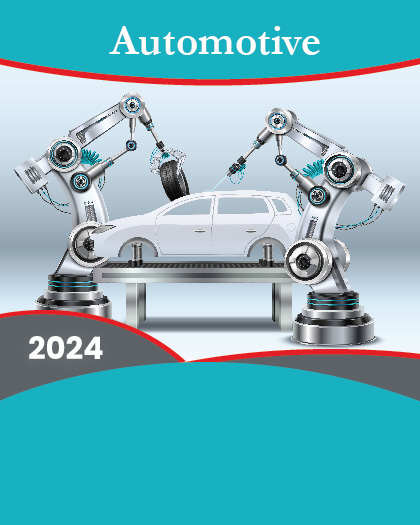
An electric drive is an electromechanical device that is used for converting electrical energy into mechanical energy that provides motion to the wheels of the vehicles. A typical e-drive system consists of an electric motor and a control system used for controlling the rotation of the motor shaft. The e-drive for automotive consists of a battery, motor, power electronics, and others. For moving the vehicle back and forth, various types of power modules such as controller and inverters are used. It can also be used in a premium class vehicle and a sports car.
E -drive for automotive has a substantial demand due to the global surge in the fuel prices. There have been significant technological developments in the automotive industry that will have a positive impact on the e- drive for automotive market. The various stringent government norms adopted globally for maintaining the pollution levels and an increase in sales of hybrid and electric vehicles will lead to the market growth. The increase in utility programs for supporting the adoption of electric vehicles adds to the growth. The key market players are more inclined towards electric vehicles and have started offering EV range for models including, vans, hatchbacks, superminis, sedans, and large family cars. The increased deployment of grid systems will support the charging of electric vehicles and will increase the demand for electric drive systems. The increase in electric vehicles sales in emerging economies is a primary growth opportunity for e-drives.
For this study, global e-drive for automotive market has been segmented based on drive type, product, electric vehicle type, application, and region. On the basis of drive type, the market has been segmented as front wheel drive, rear wheel drive, and all-wheel drive. Front wheel drive segment has the largest market size due to the increased installation of motors and batteries in the front axle. On the basis of product, the market is segmented into power electronics, e-brake booster, battery motor, and others. Among these, battery segment has the largest share as they are they main source of electric power that is required to run the vehicle. On the basis of electric vehicle type, the market is segmented into battery electric vehicles, HEVs (hybrid electric vehicles) and plug-in hybrid electric vehicles. HEV segment holds the larger share as they can also work on the exhaustion of electric energy as they have the engine as a second power source. On the basis of application, the market is segmented into E-axle and E-wheel drive. E-axle holds the larger share as it has three components that are combined in a single component system, which makes it a simple assembly, saves space, and makes the powertrain unit less complex. On the basis of regions, the market is segmented into North America, Europe, Asia-Pacific, and the Rest of the world.
























